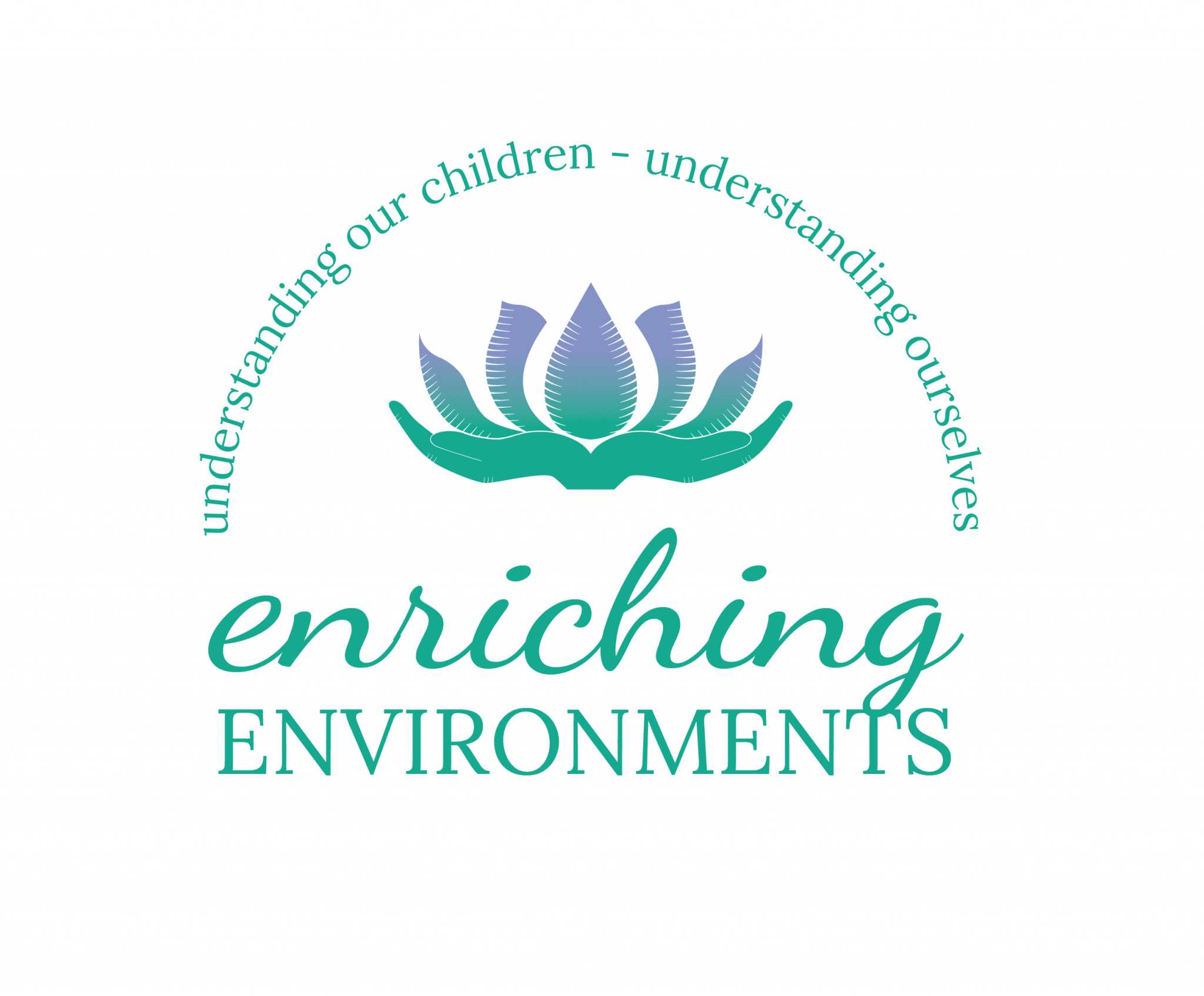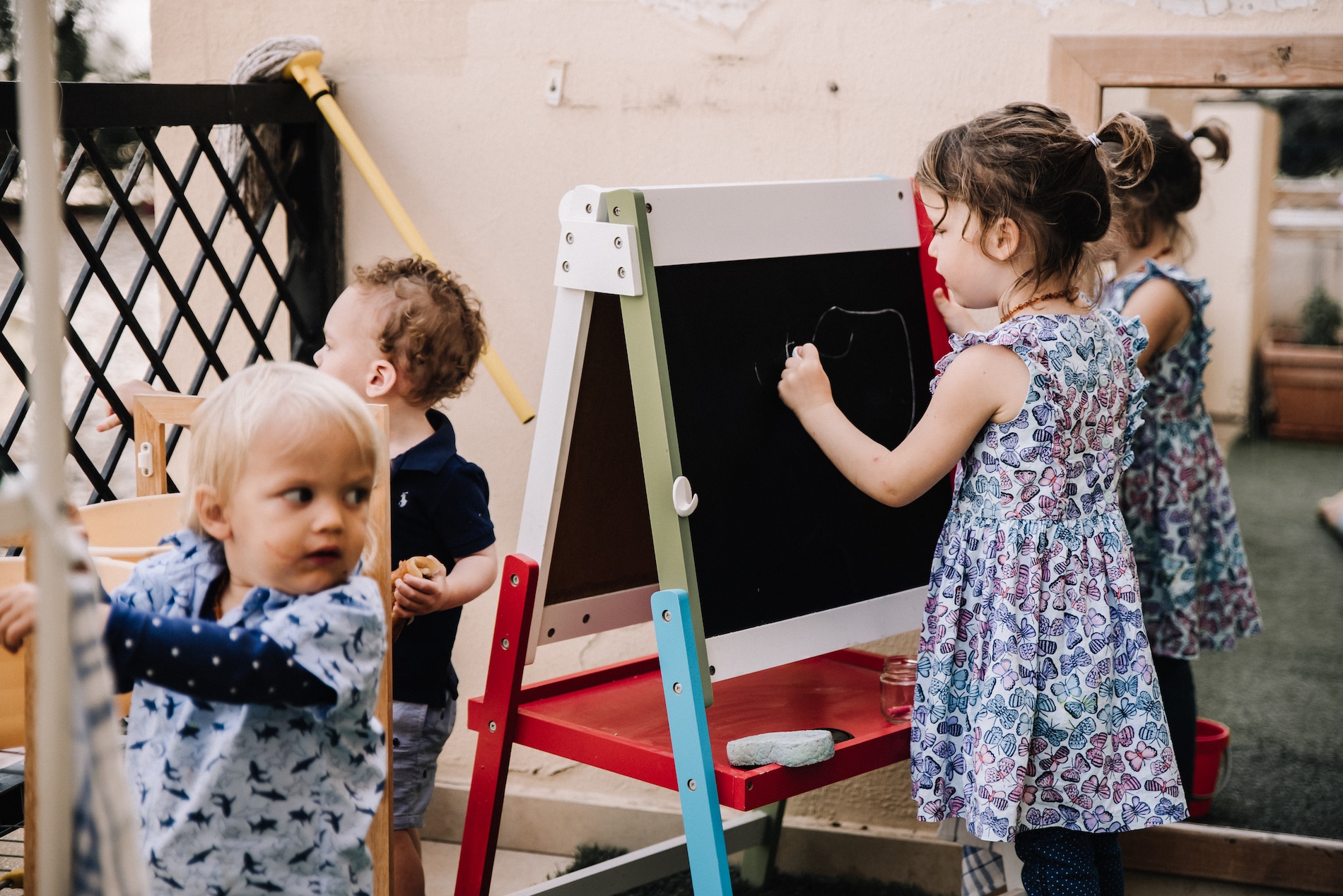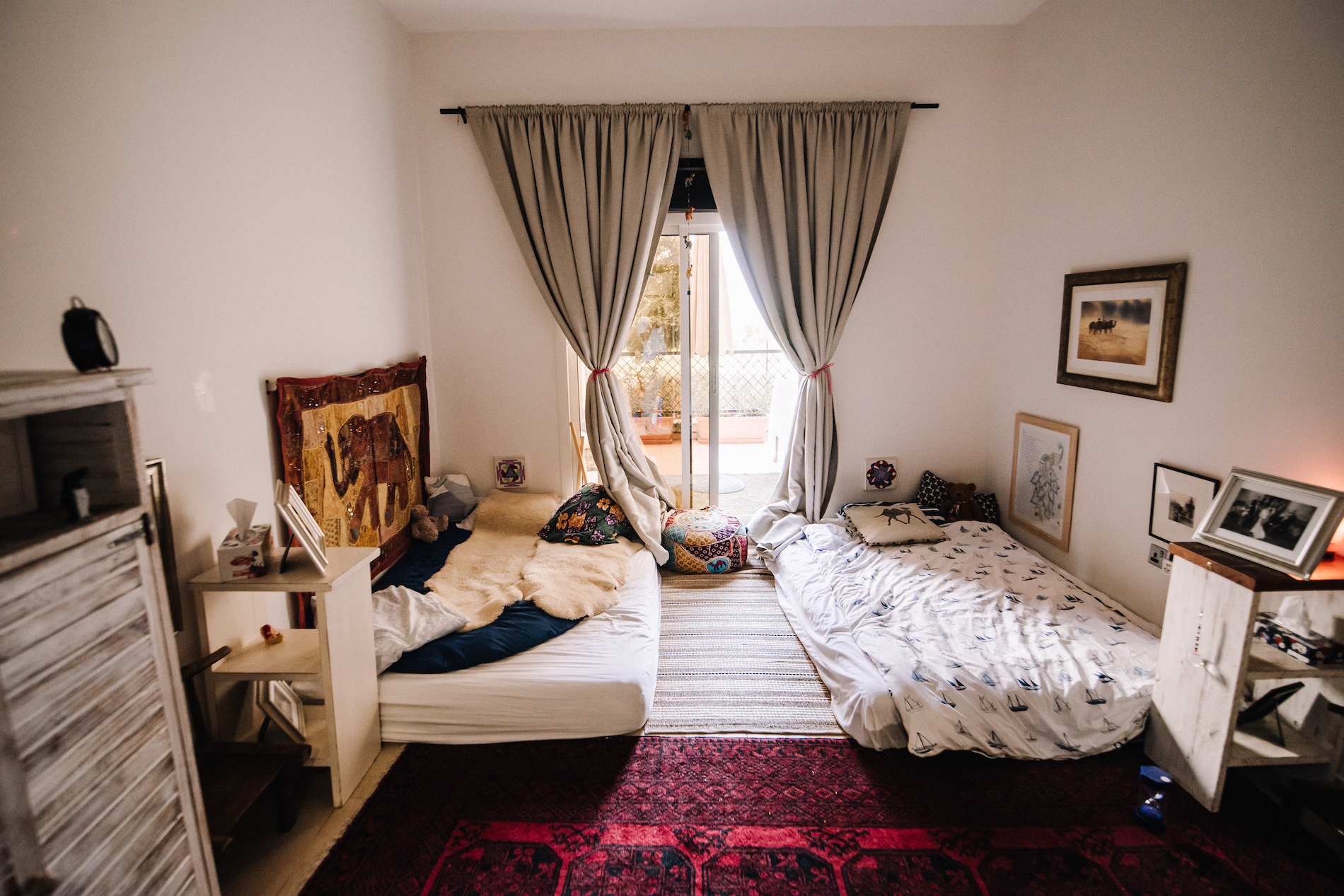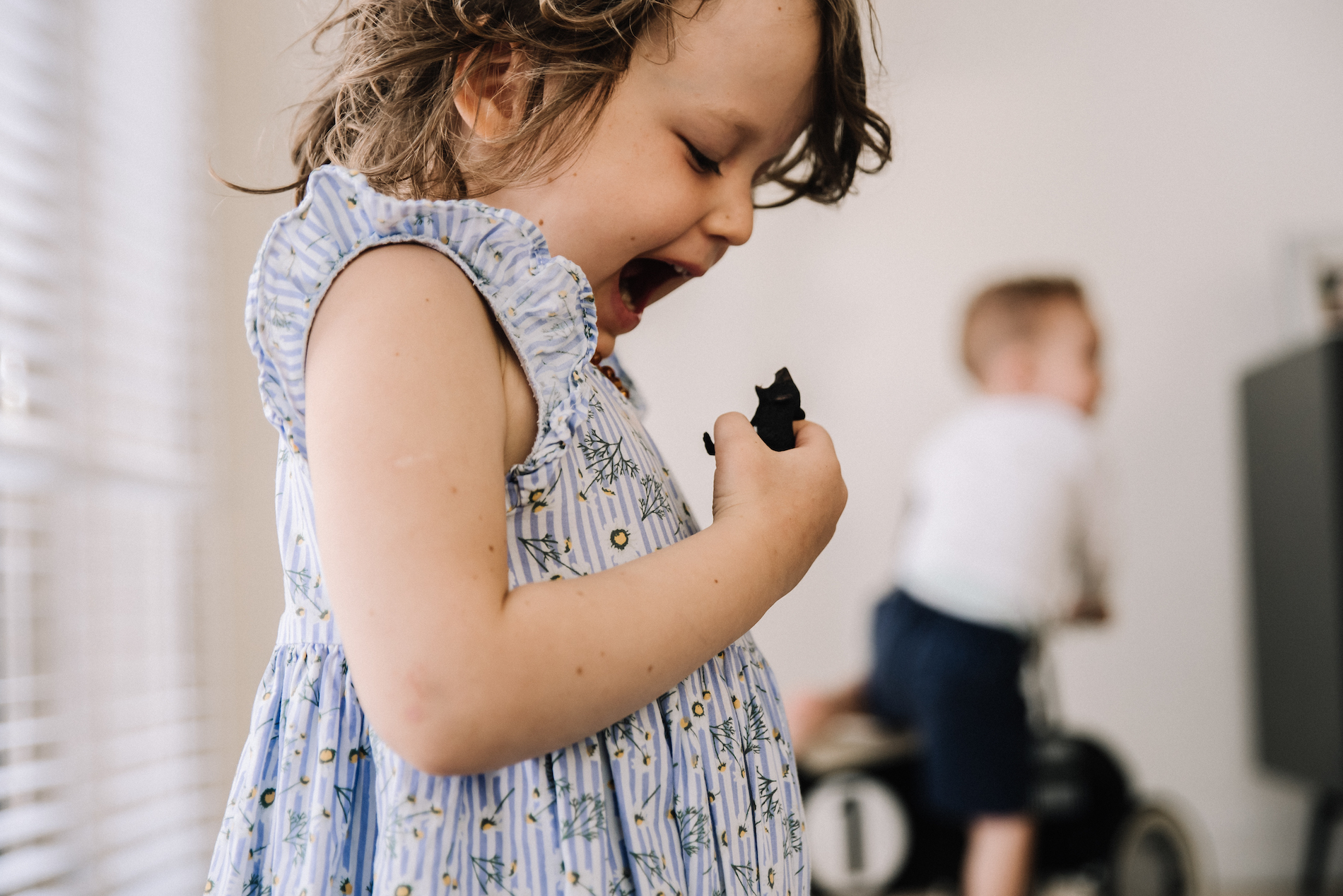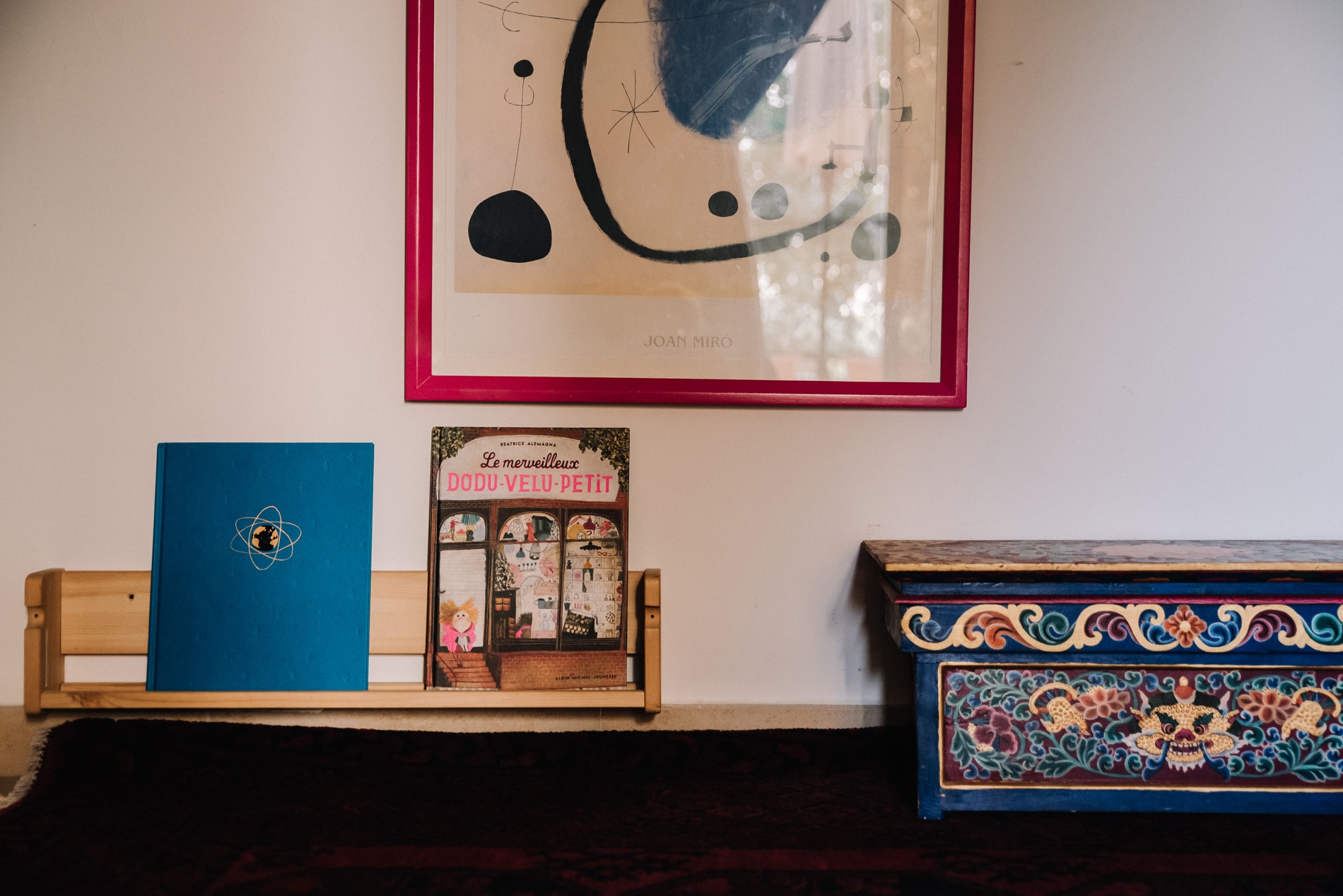We seek to have our homes as a Spiritually Enriching Environment, as much for ourselves as for our children. We seek to create a nourishing and soul-enriching place where the whole family can find calm and stillness, relaxation and fun, openness and acceptance.
Creating a Spiritually Enriching Environment is as simple as giving our children our undivided attention when we are with them, or holding space for them. Holding space means capturing the magical stillness of just ‘being’ in the moment with them by focussing 100% on them. This would mean putting our phones and other screens to one side when we are with them, thus giving them our full presence.
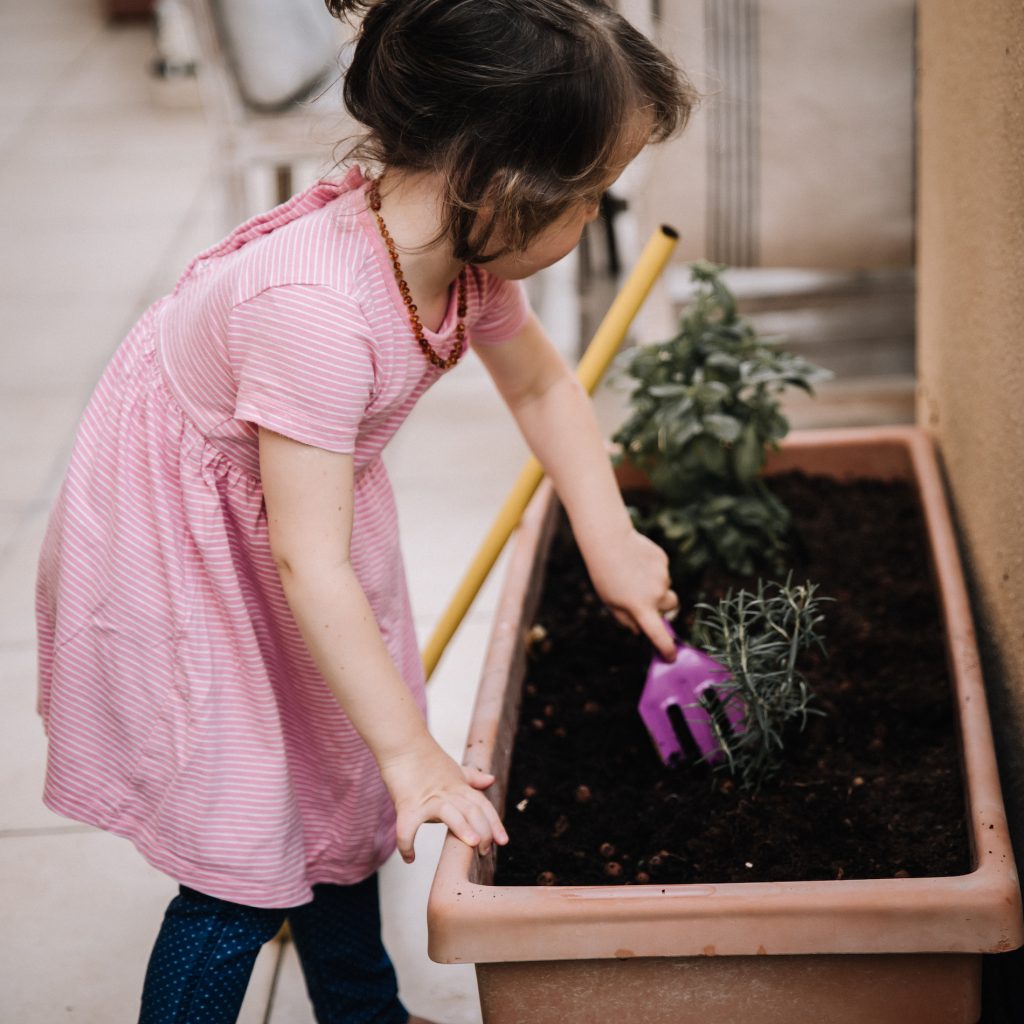
Authentic presence is a true gift to our children. The moments of such pure connection evoke gratitude for the experience from both the children and us. These are precious moments of doing nothing besides being with them, free of agenda. These happen when we are able to push back on our desire to get on with our day and do all of the things that we want or need to do.
The lure of ‘getting on with this so we can move on’ is very, very strong, and our lives are so busy that it is easy to be seduced by the thought that something else can be more important than a few moments of complete presence with our child.
Complete presence means just being with them. You don’t necessarily need to ‘do’ anything with them. For a newborn, this means observing them when they are playing on their sheepskin, or gazing into the mirror on their movement mat, or lying on their back on their sheepskin, watching as the light and shadows move across the room. Do not interrupt them; just sit and watch them, their body language, their reactions. Dive in and be part of the wonder of their new world that they are experiencing.
For a Piccolini, this means noticing when they become engrossed in a particular book, or a piece of work on the shelf. As soon as you notice their focus, stop what you are doing and take care to not do anything that might disturb their concentration. Don’t try to grab your phone to take a photo or even try to sit down to make yourself comfortable. They will pick up on a shift in energy, so take care to just stop where you are to simply observe them in their space.
Holding space becomes a natural way of being when we are able to disengage from the lists and agendas running constantly in our minds with a conscious desire to share mindful space with our children. This is something that happens instantly for some, and takes practice for others. But we are all capable of it, just as our children are always showing us how intense and meaningful the present moment can be.
To more specifically engage the values we would like our children to inherit, we include simple rituals into the rhythm of daily life in order to consciously show gratitude for all that we have and to connect with each other as a family. An example would be saying Grace together prior to eating (snacks and meals). A simple Grace allows for appreciation of the meal on our table and the beauty of each family member enjoying this shared experience. Dive into the Power of Rhythm and Ritual for further guidance on the role of rituals.
In a Spiritually Enriching Environment we immerse our children in the abundance of life, the wonder of planet earth, grounding them in the beauty of nature, of art, of music. We let them play outdoors uninhibited in all weathers, as being in nature nourishes us and them like nothing else. We show them how to explore, to feel, to touch, to truly experience something with all of their senses.
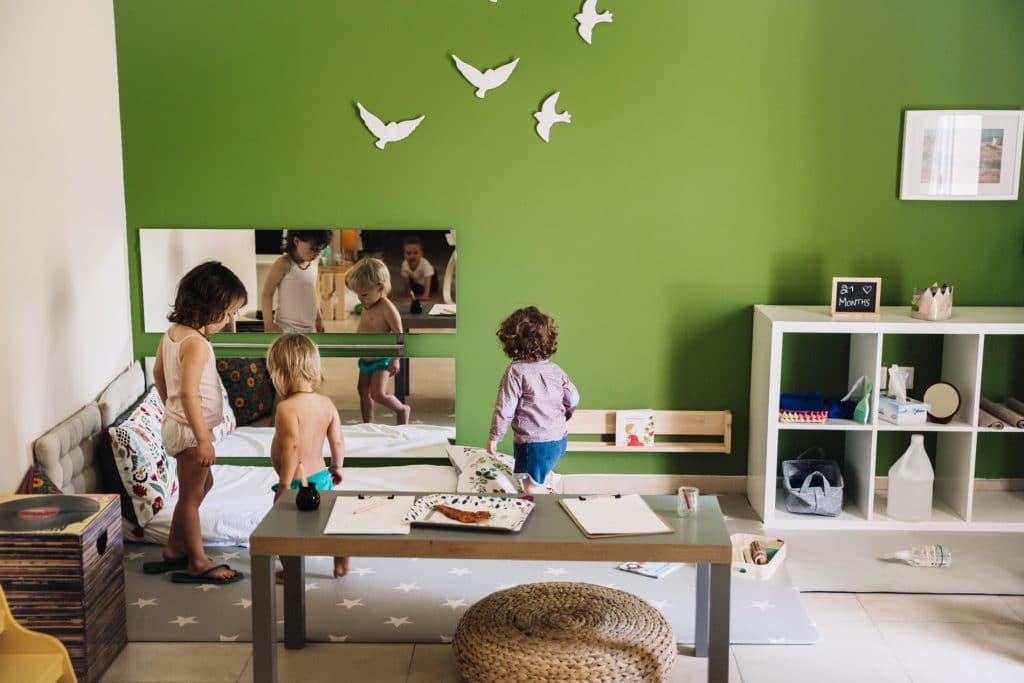
Encourage your child to walk barefoot on the ground, on the grass and sand, and in the mud! Lie out flat on your back with them on the grass, encourage them to have a full sensorial experience of the earth.
Being close to nature extends to having natural items for our children in our homes. Natural materials give sensory feedback that plastics cannot; a simple wooden rattle will feed a baby’s soul in a way that a plastic toy cannot.
Plastic is a very unsatisfying material for a child or baby to explore, quite aside from the staggering environmental disaster that we have created by our over-reliance on plastic.
You can see for yourself how unsatisfying plastic with this simple experiment. Close your eyes and hold something plastic in your hands, manipulate it for a few minutes, put it in your mouth, do what a baby would do with it. Open your eyes and look at it, what is there of interest to look at on this plastic object? Note everything you are feeling and thinking.
Now do the same with something wooden, close your eyes and hold it in your hands, manipulate it for a few minutes, put it in your mouth, do what a baby would do with it. Open your eyes and look at it, what is there of interest to look at on this wooden object? Note everything you are feeling and thinking.
Opting to have a plastic free childhood for your child is further discussed here. From wherever you are in your parenting journey you can make a commitment to not buy anything plastic for your baby or child. Choose glass bottles for feeding, cloth nappies or biodegradable disposables made from a sustainable material like bamboo, ceramic and glass or sustainable wooden bowls for mealtimes.
From a spiritual perspective, we seek for our babies and children to have as much contact as possible with nature, and natural environments. We keep them away from artificial environments such as malls, play centres. Schools, nurseries and daycare establishments without natural light and free access to outdoors should be avoided. Or if unavoidable, then we support them in forging a strong connection with the earth as nature nourishes and sustains us. Having a strong connection to the natural world as children will ensure that they play an active role in preserving the planet as they grow up.
We feed our children’s souls by playing them a vast range of music from all over the world, from classical to modern, from our own culture and many other cultures, in different languages and different styles. We do the same for art and dance.
We offer our children unstructured, unscheduled time to explore their world, both indoors and outdoors. We thus give them time to unfold into who they are meant to be.
In a Spiritually Enriching Environment we follow these five principles:
- We offer them our undivided time and attention. We are fully present with them as much as is humanly possible. Full presence means to be in the moment with them, putting screens and other distractions to one side.
- We help them to identify how they feel in their bodies by showing them how to experience life fully through all of their senses. We offer real, first hand experiences of exploration and play outdoors, making unstructured time in nature a priority from their earliest days.
- We explore the beauty and wonder of this planet with them, facilitating their experience in all weathers and environments.
- We commit to making our home an extension of the natural world outside by eliminating anything plastic and finding a natural alternative for toys, nappies, crockery, and clothes.
- We make our homes a full immersion in the richness and beauty of creativity: art, music, dance, song whilst offering influences from our own culture and many others from around the world.
Similar Posts
- 17 September 2019 00:32
- 11 September 2019 17:50
- 9 September 2019 13:43
